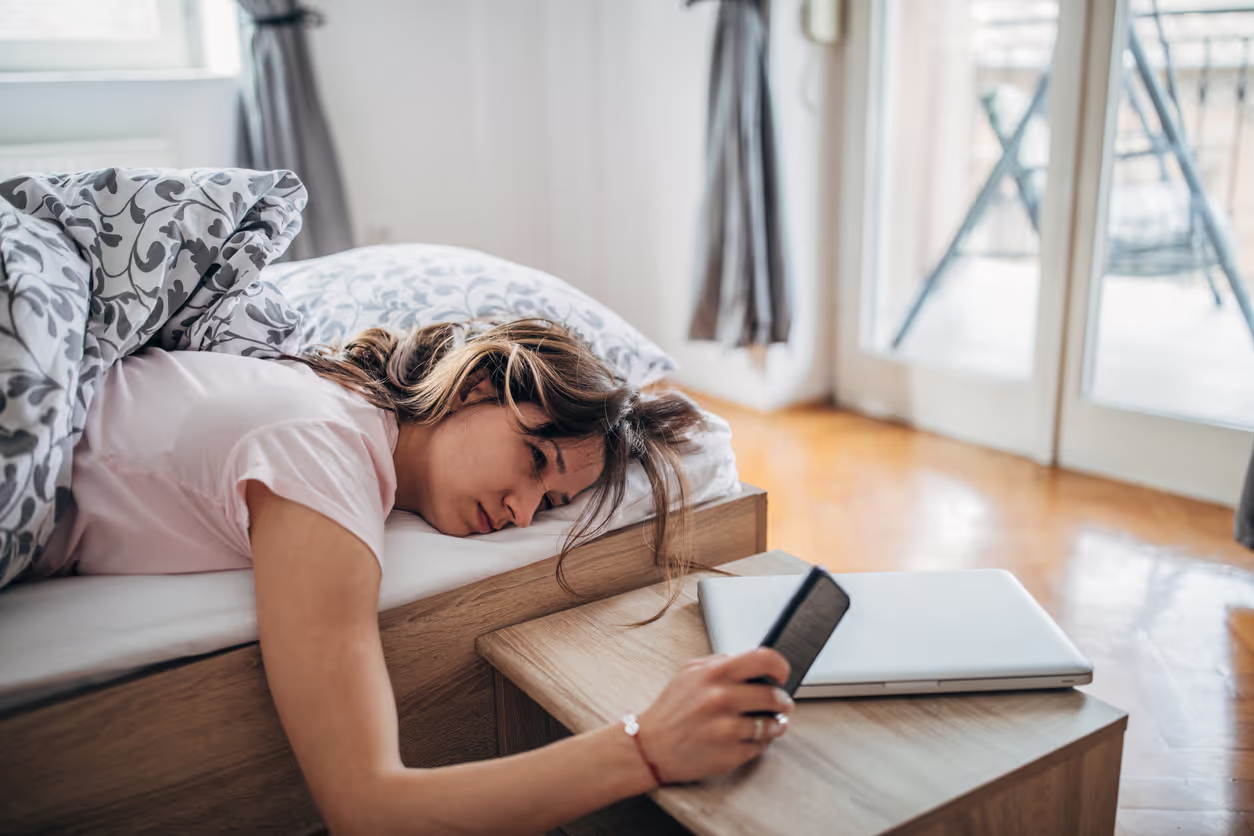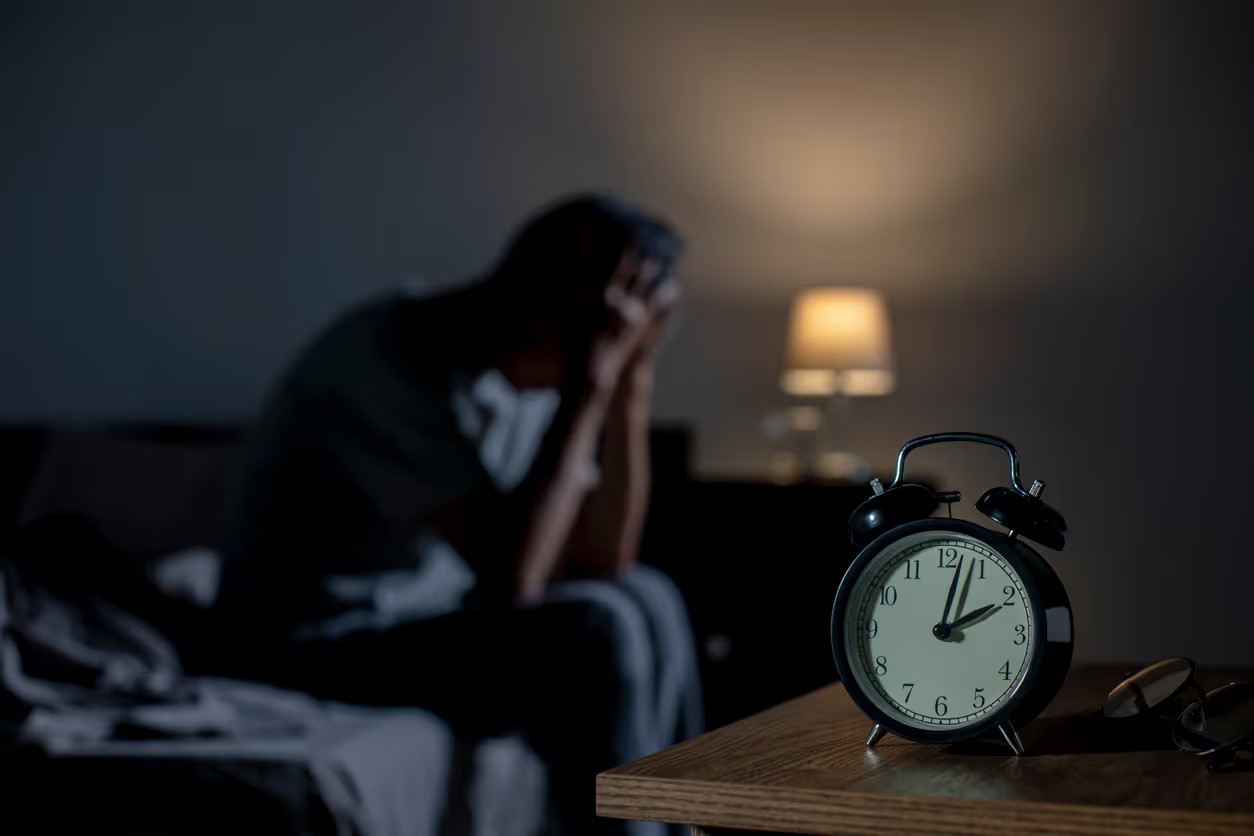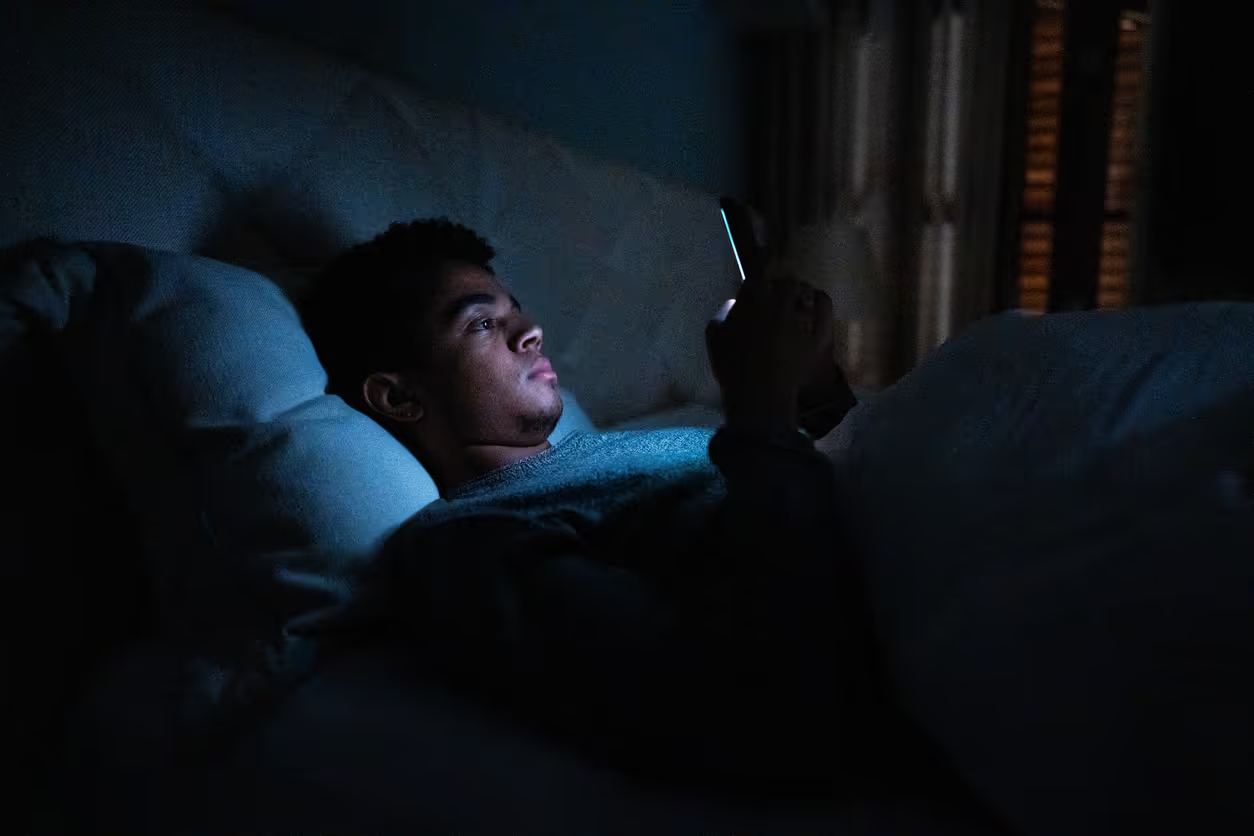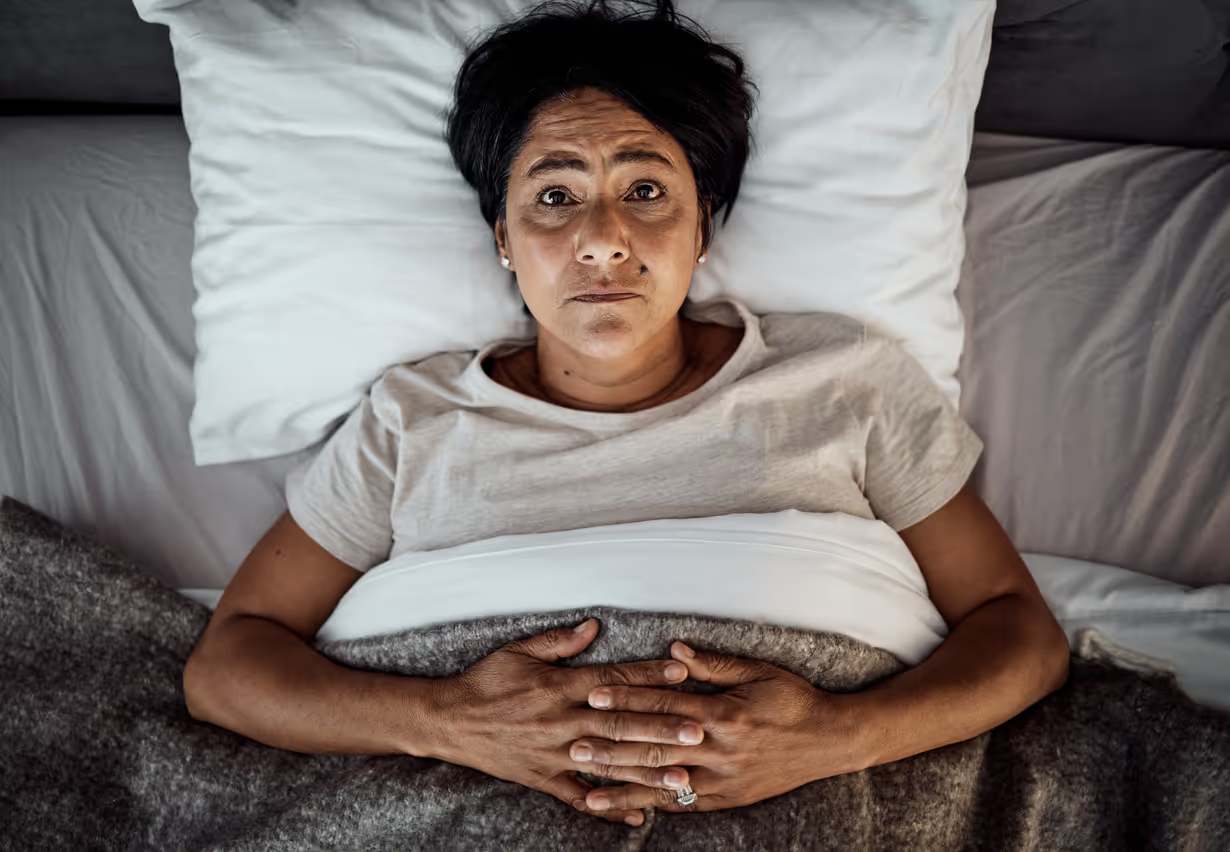Sleep problems in adults: when to get help

Understanding common causes of poor sleep—and when it’s time to seek professional support
Tossing and turning at night? Waking up exhausted no matter how many hours you spend in bed? You’re not alone. Sleep problems in adults are incredibly common—but often go undiagnosed or untreated. While the occasional restless night isn’t usually a cause for concern, ongoing issues with falling asleep, staying asleep, or waking too early can affect your health, mood, and daily life.
If you want to know more about your sleep health, try taking our comprehensive free Sleep Assessment and in only a few minutes of answering questions you will receive a free Sleep Health Report.
We have successfully treated insomnia and other sleep disorders for more than 40+ years. Our protocols are proprietary—a direct result of practitioner feedback from thousands of client sessions and training cohorts—meaning more precise, individualized, and trusted outcomes than off-the-shelf CBT‑I. Find out how we can help you achieve lasting improvements to your sleep health, general health and wellbeing. Start your journey here.
Here’s what you need to know about the most common sleep problems in adults—and when it’s time to seek help from a sleep specialist or therapist.
Common sleep problems in adults
Sleep challenges can look different for everyone, but the most frequent issues include:
1. Insomnia
Difficulty falling asleep, staying asleep, or waking up too early without feeling rested. Chronic insomnia affects 10–15% of adults and is often linked to stress, anxiety, or poor sleep habits.
2. Sleep apnoea
A condition where breathing repeatedly stops and starts during sleep, often due to blocked airways. Common symptoms include loud snoring, gasping for air, and excessive daytime fatigue.
3. Restless legs syndrome (RLS)
An uncontrollable urge to move the legs—especially at night—often accompanied by uncomfortable sensations. RLS can significantly disrupt sleep and lead to chronic exhaustion.
4. Circadian rhythm disorders
Your body’s internal clock may be out of sync with your environment, leading to delayed sleep, early waking, or irregular sleep patterns.
5. Nighttime anxiety or racing thoughts
Chronic stress or mental health conditions like generalised anxiety disorder can trigger sleep-onset insomnia or cause frequent wakeups throughout the night.
When to get help for sleep problems
Many adults assume their sleep problems are just part of getting older or living a busy life. But persistent poor sleep is not something you have to accept.
Talk to a healthcare provider if:
- You have trouble sleeping more than 3 nights a week for over 3 months
- Poor sleep is affecting your work, relationships, or mood
- You rely on alcohol, over-the-counter pills, or melatonin every night
- You snore loudly or wake up gasping for air
- You feel sleepy during the day despite spending 7–9 hours in bed
Sleep is a pillar of physical and mental health—just like nutrition and exercise. Ignoring ongoing sleep issues can increase the risk of depression, anxiety, heart disease, and cognitive decline.
Effective treatments are available
The good news? Most sleep problems in adults are treatable. Depending on the cause, your provider may recommend:
- A sleep study or overnight monitoring (for sleep apnoea or complex cases)
- CBT-I (Cognitive Behavioural Therapy for Insomnia)—the gold-standard treatment for chronic insomnia
- Lifestyle changes and sleep hygiene education
- Medications (short-term use, in some cases)
Final thoughts
If you’re one of the many people quietly struggling with sleep problems in adulthood, it’s important to know that better sleep is possible. The sooner you identify the issue and seek support, the sooner you can start feeling better—mentally, physically, and emotionally.
Don’t wait for it to get worse. If your sleep is suffering, it’s time to get help.
Frequently asked questions
What are the most common sleep problems in adults?
Insomnia, sleep apnoea, restless legs syndrome, and circadian rhythm disorders are the most frequently reported adult sleep disorders.
When should I see a doctor about sleep problems?
If poor sleep persists for more than 3 nights a week over 3 months, or if it’s affecting your daily life, speak to a sleep specialist or GP.
What is CBT-I and how does it work?
CBT-I (Cognitive Behavioural Therapy for Insomnia) helps identify and change the thoughts and behaviours that cause chronic sleep problems. It’s widely recommended over medication for long-term results.
Can sleep apnoea go undiagnosed?
Yes. Many people with sleep apnoea are unaware they stop breathing during sleep. Loud snoring, choking, and daytime fatigue are key warning signs.
Is poor sleep in adulthood just part of ageing?
No. While sleep patterns change with age, persistent poor sleep is not normal. It’s often treatable with the right support.
Book a time with one of our sleep specialists to get your sleep back on track.





